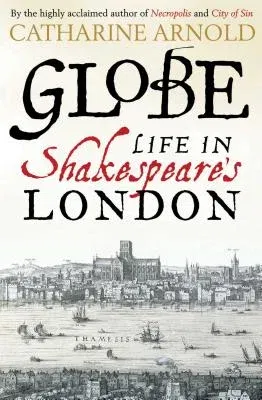A fascinating portrait of life in Shakespeare's London, as seen from
the theatrical perspective by popular historian Catharine Arnold.
The life of William Shakespeare, Britain's greatest dramatist, is
inextricably linked with the history of London. Together, the great
writer and the great city came of age and confronted triumph and
tragedy. Triumph came when Shakespeare's company, the Chamberlain's Men,
opened the Globe playhouse on Bankside in 1599, under the patronage of
Queen Elizabeth I. Tragedy touched the lives of many of his
contemporaries, from fellow playwright Christopher Marlowe to the
disgraced Earl of Essex, while London struggled against the ever-present
threat of riots, rebellions and outbreaks of plague.
Globe takes readers on a sweeping tour of London through Shakespeare's
life and work, as Catharine Arnold recounts in fascinating detail how
acting came of age. We learn about James Burbage, founder of the
original Theatre in Shoreditch, who carried timbers across the Thames to
build the Globe among the bear-gardens and brothels of Bankside, and of
the terrible night in 1613 when the theatre caught fire during a
performance of King Henry VIII. Rebuilt, the Globe continued to stand as
a monument to Shakespeare's genius until 1642 when it was destroyed on
the orders of Oliver Cromwell. And finally we learn how 300 years later,
Shakespeare's Globe opened once more upon the Bankside, to great
acclaim, rising like a phoenix from the flames.
Arnold has created a vivid portrait of Shakespeare and his London from
the bard's own plays and contemporary sources, combining a novelist's
eye for detail with a historian's grasp of his unique contribution to
the development of the English theatre. This is a definitive and
compelling portrait of Shakespeare, London, the man and the myth.

